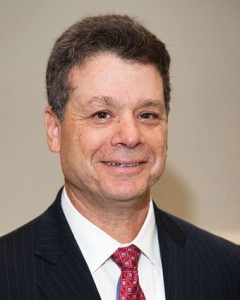
Top issues for New York engineering firms in 2017 - by Jay Simson
By Jay Simson
ACEC New York has confirmed legislative priorities for the upcoming 2017 legislative session.
The focus of ACEC New York advocacy in 2017 continues to be passage of legislation protecting engineering firms from unreasonable, uninsurable indemnification demands. The bill seeks to make indemnification language in contracts with public entities and municipalities standard throughout the state. It would prevent design professionals from being forced to indemnify clients for damages that fall outside their professional standard of care, and for which they are not responsible.
Engineering firms should only be responsible for the work they perform. Indemnification-related contract language should be consistent with the standard of care as set by the State Education Department and available professional liability insurance coverage. Forcing engineering firms to agree to be the ultimate guarantor of a project, regardless of the scope of their responsibility is unreasonable and flies in the face of sound public policy. Other ACEC New York legislative priorities for 2017 include:
Protect Firms that Respond to Disasters
ACEC New York, along with the state’s design and construction community, continues to advocate for the passage of the Emergency Responder Act to protect firms from unfair and destructive litigation in the wake of disasters. Without this legislation, the firms best situated to help localities in the aftermath of a disaster will be unable to offer assistance.
Qualifications-Based Selection (QBS)
ACEC New York supports the expansion of Qualifications-Based Selection – the most effective way to procure professional design services. QBS brings procurers the best quality and the best overall value and avoids the pitfalls associated with low-bid professional engineering service contracts. It fosters the development of innovative designs with lower life-cycle costs. Extend QBS requirements to public authorities and public benefit corporations.
Increase Use of New York Private Design Firms
Expertise, efficiencies and capacity brought by private engineering design firms provide greater value for the taxpayer. A 2011 NYU Polytechnic Report documents a 20%+ savings when private engineering firms are utilized.
ACEC New York also supports a number of funding priorities, including the support of sensible and sustainable infrastructure funding. Under this priority, ACEC New York recommends using surpluses to finance and fund a number of initiatives, including long-term infrastructure projects; exemption of capital funding from the local property tax cap; provision of mandate relief for municipalities; investment in capital projects; maintenance of existing infrastructure. We believe it is important to ensure that funding is evenly distributed in NYS. ACEC New York also supports the MOVE-NY Fair Tolling Plan to provide a sustainable funding source for transit, roads and bridges, while improving traffic flow and safety for commerce and people.
ACEC New York is a proactive coalition of 280 firms representing every discipline of engineering related to the built environment—civil, structural, mechanical, electrical, environmental, geotechnical—and affiliated companies. Our shared goals are to further the business interests of our membership, enhance the quality and safety of the environment we live and work in, and help ensure the vitality of our communities. For more information, visit www.acecny.org.
Jay Simson, CAE, is the president of ACEC New York, Albany, N.Y.
